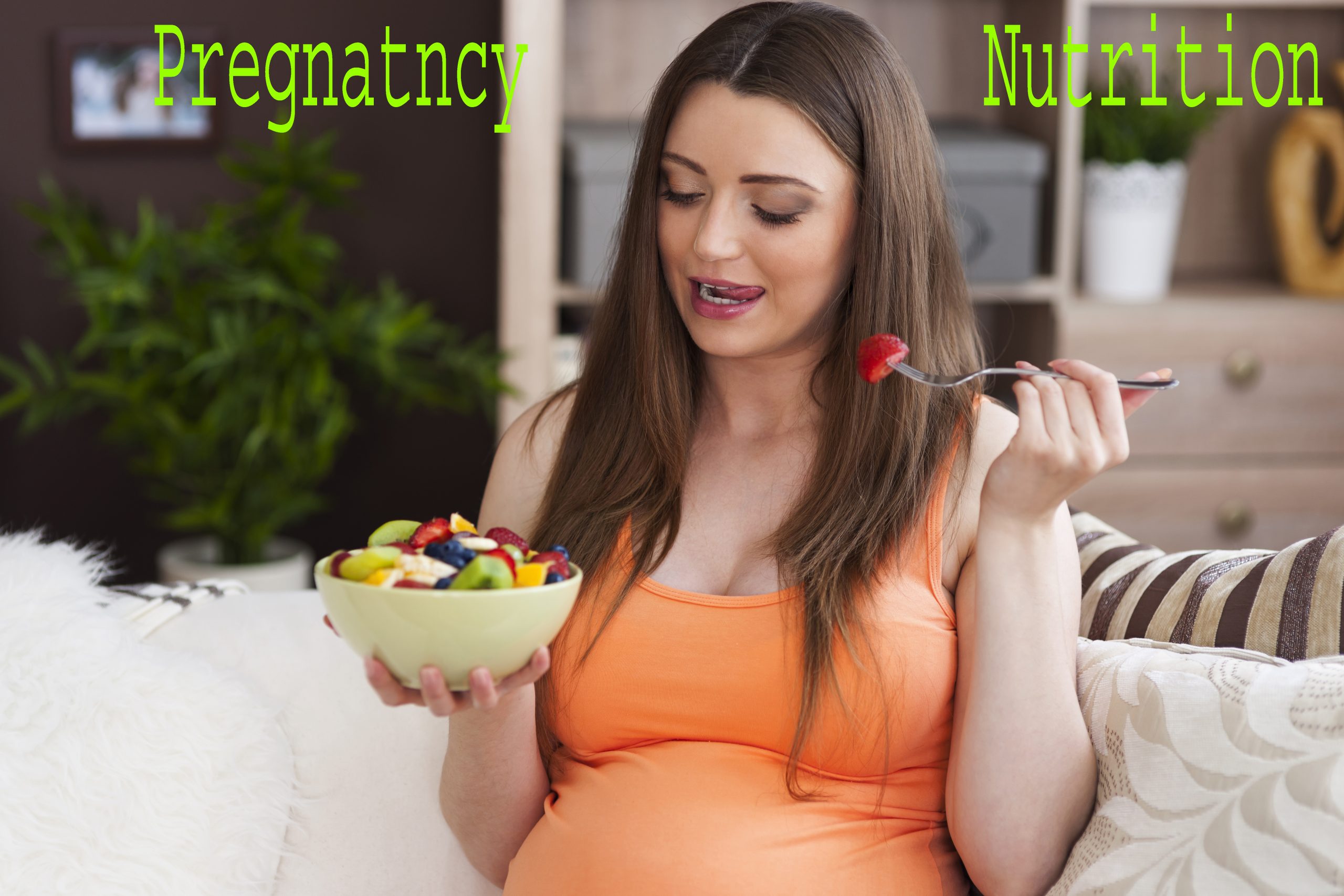Women’s reproductive health is vital for overall well-being. The right foods can support this important aspect of health.
Nutrition plays a key role in maintaining hormonal balance, fertility, and menstrual health. Many women may not realize how much their diet impacts their reproductive system. Certain foods can nourish the body and promote healthy functions. Incorporating nutrient-rich options can help alleviate symptoms related to hormonal changes.
Moreover, these foods can enhance fertility and support a healthy pregnancy. Knowing which foods to prioritize can empower women to take charge of their health. In this guide, we will explore the best foods for women’s reproductive health, helping you make informed choices for a healthier future.
Women’s Reproductive Health
Women’s reproductive health is a vital aspect of overall well-being. It covers the reproductive system’s condition and operations. Nutrition plays a crucial role in maintaining this health. Proper nutrition supports various reproductive processes. This includes menstruation, fertility, and hormonal balance.

Importance Of Nutrition
Nutrition is fundamental for women’s reproductive health. It provides essential nutrients for the body. These nutrients support reproductive functions and hormonal activities.
- Vitamins: Important for hormone production.
- Minerals: Support cellular functions.
- Healthy fats: Aid in hormone synthesis.
A well-balanced diet boosts immunity and energy levels. It helps manage stress, which is crucial for reproductive health. Women should focus on whole foods.
Impact On Fertility And Hormonal Balance
Nutrition directly affects fertility and hormonal balance. Certain foods can enhance fertility. Others may disrupt hormonal balance. Here are some key foods:
| Food | Benefit |
| Leafy Greens | Rich in folate, supports ovulation. |
| Avocados | High in healthy fats, promotes hormone balance. |
| Fish | Contains omega-3 fatty acids, supports reproductive function. |
| Nuts and Seeds | Provide nutrients for hormonal health. |
Eating a variety of these foods can help maintain hormonal balance. Regular menstrual cycles depend on hormone balance. They also support fertility and overall reproductive health.
Fruits For Fertility
Fruits are vital for women’s reproductive health. They provide essential vitamins and minerals. Certain fruits can boost fertility. Incorporating these into your diet can support overall well-being.
Berries: Antioxidant Powerhouses
Berries are small but mighty. They are rich in antioxidants. Antioxidants help fight free radicals. This is crucial for maintaining healthy cells.
Here are some popular berries to include in your diet:
- Blueberries – High in Vitamin C and fiber.
- Strawberries – Great for blood circulation.
- Raspberries – Contain powerful antioxidants.
- Blackberries – Rich in vitamins and minerals.
These berries also support hormone balance. They can help reduce inflammation. Savor them as snacks, in smoothies, or fresh.
Citrus Fruits: Vitamin C And Folate
Citrus fruits are another excellent choice. These nutrients are essential for reproductive health.
Here are some citrus fruits to consider:
- Oranges – Boosts immune system and skin health.
- Lemons – Supports digestion and detoxification.
- Limes – Rich in Vitamin C.
- Grapefruits – May help balance hormones.
Including these fruits in your diet can enhance fertility. They support a healthy reproductive system. Enjoy them in salads, juices, or as snacks.
Essential Vegetables
Eating the right vegetables can support women’s reproductive health. Certain vegetables are rich in nutrients. These nutrients help maintain hormonal balance and overall wellness. Let’s explore two important categories: leafy greens and cruciferous vegetables.
Leafy Greens: Iron And Calcium
Leafy greens are packed with essential nutrients. They provide iron and calcium, both vital for women’s health.
- Spinach: High in iron. Helps prevent anemia.
- Kale: Great source of calcium. Supports bone health.
- Swiss Chard: Contains magnesium. Aids in muscle function.
These vegetables also provide antioxidants. Antioxidants help reduce inflammation.
- Add spinach to smoothies.
- Make a kale salad.
- Stir-fry Swiss chard with garlic.
Cruciferous Vegetables: Fiber And Indole-3-carbinol
Cruciferous vegetables offer unique benefits. They are high in fiber and contain indole-3-carbinol. This compound supports hormone balance.

| Vegetable | Benefits |
| Broccoli | Rich in fiber. Supports digestion. |
| Cauliflower | Contains antioxidants. Promotes cell health. |
| Brussels Sprouts | High in vitamins. Boosts immune system. |
Adding cruciferous vegetables to meals is simple:
- Roast broccoli with olive oil.
- Make cauliflower rice.
- Steam Brussels sprouts with lemon.
Whole Grains And Their Benefits
Whole grains are essential for women’s reproductive health. They are packed with nutrients. Hormone balance and general health can be supported by whole grains. They provide fiber, vitamins, and minerals that are crucial for bodily functions.
Consuming whole grains could make you more energetic. They promote heart health as well. Whole grains include things like barley, brown rice, quinoa, and oats. Each offers special advantages for reproductive health.
Quinoa: Complete Protein
Quinoa is a fantastic grain for women. It is a complete protein. This indicates that all nine of the necessary amino acids are present. Quinoa is suitable for people with gluten sensitivity because it is gluten-free.
- Rich in fiber
- Contains iron and magnesium
- Helps manage blood sugar levels
- Supports healthy ovulation
Adding quinoa to salads or bowls is simple. It can also be used in soups. This versatile grain helps keep you full longer.
Oats: Heart Health And Hormones
Oats are another excellent whole grain. They are heart-healthy and hormone-friendly. Oats contain beta-glucans, which help lower cholesterol.
| Benefits of Oats | Description |
| Rich in Fiber | Promotes digestive health and regularity. |
| Stabilizes Blood Sugar | Prevents spikes and crashes in energy. |
| Supports Hormonal Balance | Helps regulate menstrual cycles. |
Eating oats for breakfast is easy. They can be made as oatmeal or added to smoothies. Oats keep you energized throughout the day.
Protein Sources
Protein plays an important role in women’s reproductive health. It helps build and repair tissues. It also supports hormone production. Choosing the right protein sources can enhance overall well-being. Some great options come from plants and fish.
Plant Proteins: Beans And Lentils
Beans and lentils are excellent plant protein sources. They are rich in fiber and nutrients. Fiber helps maintain a healthy digestive system. This is important for hormonal balance. Lentils provide iron, which is vital for blood health.
Protein and antioxidants are provided by beans, including kidney and black beans. These antioxidants help fight inflammation. Reducing inflammation can improve reproductive health. Incorporating beans and lentils into meals is easy. They go well with salads, stews, and soups.
Fish: Omega-3 Fatty Acids
Fish is another great protein source. It is packed with omega-3 fatty acids. Heart and brain health are supported by these good fats.
Particularly advantageous are fatty seafood, such as sardines and salmon. They help reduce inflammation in the body. Including fish in your diet can improve reproductive health. Every week, try to eat two servings of fish. This simple change can have a positive impact.
The Role Of Healthy Fats
Healthy fats are crucial for women’s reproductive health. They support hormone production and overall well-being. Including the right fats in your diet can enhance fertility and menstrual health.
Healthy fats help your body absorb important vitamins. They also reduce inflammation and support brain health. Here are two key sources of healthy fats that benefit reproductive health.
Avocado: Monounsaturated Fats
Avocados are rich in monounsaturated fats. These fats are heart-healthy and beneficial for hormone balance. Including avocados in your meals can enhance nutrient absorption.
- High in vitamins E and K
- Support hormone production
- Improve cholesterol levels
Adding avocados to your diet is easy. Savor them on toast, in smoothies, or in salads. They have a great flavor and a creamy texture.
Nuts And Seeds: Vital Nutrients For Reproduction
Nuts and seeds offer a blend of healthy fats and nutrients. They are great sources of omega-3 fatty acids. The reproductive system’s health depends on these nutrients.
| Food | Key Nutrients |
| Walnuts | Omega-3 fatty acids, antioxidants |
| Flaxseeds | Omega-3s, fiber, lignans |
| Chia Seeds | Omega-3s, protein, fiber |
| Almonds | Vitamin E, magnesium |
Including a variety of nuts and seeds in your diet can boost reproductive health. Eat them as a snack or as part of your meals. They give your body the vital nutrition it needs to function.
Dairy And Dairy Alternatives
Dairy and dairy alternatives are important for women’s reproductive health. They supply vital nutrients such as vitamin D and calcium. These nutrients help maintain bone health and support hormonal balance. Women can choose between traditional dairy products and plant-based options. Both can offer key benefits.
Yogurt: Probiotics And Calcium
Yogurt is a great source of probiotics. Probiotics are beneficial bacteria that promote intestinal health. A healthy gut can improve digestion and boost the immune system.
Yogurt also provides calcium. Calcium is vital for strong bones. Women need enough calcium to prevent osteoporosis, especially after menopause.
- Choose plain yogurt for fewer added sugars.
- For the benefits of probiotics, look for live and active cultures.
- Greek yogurt contains more protein than regular yogurt.
Fortified Plant Milks: Vitamin D And Calcium
Fortified plant milks are a good alternative for those avoiding dairy. Almond, soy, and oat milks are frequently supplemented with calcium and vitamin D. These nutrients are essential for reproductive health.
| Plant Milk Type | Calcium Content (mg per cup) | Vitamin D Content (IU per cup) |
| Almond Milk | 450 | 100 |
| Soy Milk | 300 | 120 |
| Oat Milk | 350 | 100 |
These plant milks can be tasty and nutritious. Check labels for added sugars. Choose options that provide more nutrients. This supports overall health.
Superfoods And Supplements
Superfoods and supplements play a vital role in women’s reproductive health. They provide essential nutrients. These minerals promote general health and hormonal equilibrium. You can change your diet by including these foods.
Chia Seeds: Omega-3 And Fiber
Chia seeds are tiny powerhouses of nutrition. They are rich in omega-3 fatty acids. Omega-3s help reduce inflammation in the body. This is important for reproductive health.
These seeds also contain a lot of fiber. Fiber supports digestion and maintains a healthy weight. A healthy weight can help regulate hormones.
Chia seeds are easy to add to meals. Sprinkle them on yogurt, smoothies, or salads. They can also be used in baking. Enjoying chia seeds can boost your nutrient intake.
Prenatal Vitamins: Ensuring Adequate Intake
Prenatal vitamins are crucial for women, especially during pregnancy. They contain essential vitamins and minerals. Folate is one key ingredient. It helps prevent birth defects.
Iron is also important. It supports healthy blood flow. Calcium strengthens bones and teeth. These nutrients ensure the mother and baby stay healthy.
Taking prenatal vitamins can fill gaps in your diet. They provide nutrients that may be missing from everyday meals. Consult a healthcare provider for proper advice on usage.
Hydration And Reproductive Health
Staying hydrated is key for women’s reproductive health. Water helps the body function well. It supports hormone balance and keeps tissues healthy. Dehydration can lead to various problems. It may affect menstrual cycles and fertility.
Proper hydration is essential for blood flow. Good blood flow supports reproductive organs. Drinking enough water can improve overall well-being. It also improves mood and energy levels. These factors are important for women’s health.
Water: The Essence Of Life
All of the body’s cells depend on water.
It helps flush out toxins and waste. Water consumption facilitates nutrient absorption and digestion. It also maintains healthy skin. This is crucial for hormone production and balance.
It is recommended that women have eight glasses or more each day. More may be needed during hot weather or exercise. Listen to your body’s thirst signals. Having a water bottle close at hand might serve as a helpful reminder to stay hydrated.
Herbal Teas: Gentle Support For The Reproductive System
Herbal teas can be a soothing option for hydration. Many herbs support reproductive health. Chamomile and ginger are popular choices. They can help ease menstrual pain and reduce stress.
It is well known that raspberry leaf tea promotes uterine health. It is rich in vitamins and minerals. Peppermint tea can help with digestion and bloating. Enjoying these teas regularly can benefit overall health.
Choose caffeine-free options for better results. Caffeine can disrupt hormone balance. A gentle method of staying hydrated is to drink herbal teas. They are versatile because they can be eaten hot or cold.
Lifestyle Factors That Complement Nutrition
Nutrition is important for women’s reproductive health. But lifestyle choices can make a big difference. Simple changes can make a huge difference. Two important things to concentrate on are exercise and stress reduction. Both can enhance the benefits of good nutrition.
Exercise: Enhancing Blood Flow
Regular exercise boosts blood flow throughout the body. It helps carry nutrients to vital organs. This is especially important for reproductive health. Good blood circulation supports hormone balance.
Physical activity can also reduce menstrual pain. It can lower the risk of hormonal issues. Most days, try to get in at least 30 minutes of moderate activity.
Stress Management: Cortisol And Its Effects
Stress impacts hormone levels in the body. High stress leads to increased cortisol. This hormone can disrupt menstrual cycles and fertility. Managing stress is essential for reproductive health.
Practicing mindfulness or yoga can help. Deep breathing exercises also lower stress levels. Regular relaxation techniques can improve overall well-being. Make time for your favorite pastimes and pursuits.
Common Dietary Myths Debunked
Many women hear various myths about diet and reproductive health. These myths can create confusion. It’s important to understand what is true and what is not. Here, we will debunk two common myths about food and hormones.
Soy And Estrogen Levels
One common myth is that soy products increase estrogen levels. This idea can scare many women away from soy. The truth is quite different.
Research shows that soy contains phytoestrogens. These are plant-based compounds that act like estrogen but are much weaker. Eating soy does not significantly raise estrogen levels.
Here are some key points:
- Soy foods include tofu, edamame, and soy milk.
- Moderate soy intake is safe for most women.
- Some studies suggest soy may even help balance hormones.
High-fat Foods And Hormonal Health
Another myth suggests that all high-fat foods harm hormonal health. This is misleading. Not all fats are bad for you.
Healthy fats support hormone production. Foods like avocados, nuts, and olive oil are great options. They can lessen inflammation and aid in the absorption of nutrients.
Consider this table:
| Type of Fat | Sources | Benefits |
| Healthy Fats | Avocados, nuts, olive oil | Support hormone production |
| Unhealthy Fats | Fried foods, processed snacks | May cause inflammation |
Choose healthy fats for better hormonal balance. Avoid processed and fried foods for optimal reproductive health.
Putting It All Together
Eating well supports women’s reproductive health. Making the correct eating choices can have an impact.. Focus on nutrients like vitamins and minerals. Healthy meals help balance hormones and boost energy. Let’s explore some meal planning tips and how to get personalized advice.
Meal Planning Tips
Planning meals is key to healthy eating. Start by creating a weekly menu. Include a mix of fruits, vegetables, whole grains, and lean proteins. Aim for colorful plates. Each color brings unique nutrients.
Prep meals in advance. This helps you prevent bad decisions and saves time. Batch cooking can be helpful. Cook grains or proteins in large amounts and store them. Use them throughout the week.
Keep healthy snacks on hand. Fresh fruit, yogurt, and nuts are excellent choices. These snacks help keep energy levels stable. Drink plenty of water. Staying hydrated is essential for overall health.
Consulting A Dietitian For Personalized Advice
A dietitian can provide tailored guidance. They assess your specific needs and goals. You can gain a better understanding of your body by consulting a professional. They can suggest foods that suit your lifestyle.
Dietitians can create meal plans just for you. This ensures you get all the nutrients needed for reproductive health. Regular check-ins can help track your progress. Adjustments can be made as needed.
Investing in professional advice is a smart choice. It facilitates the process of choosing knowledgeable food choices. Your health is important. Every step you take matters.
Final Thoughts
A healthy diet supports women’s reproductive health. Give priority to entire grains, fruits, veggies, and healthy fats. These foods provide essential nutrients. They help balance hormones and promote overall well-being. Regular meals with these foods can enhance fertility and reduce menstrual discomfort.
Choose foods that nourish your body. Prioritize your health for a better quality of life. A balanced diet leads to a happier you. Embrace these foods for a healthier future.
Take care of yourself, and enjoy the benefits.

